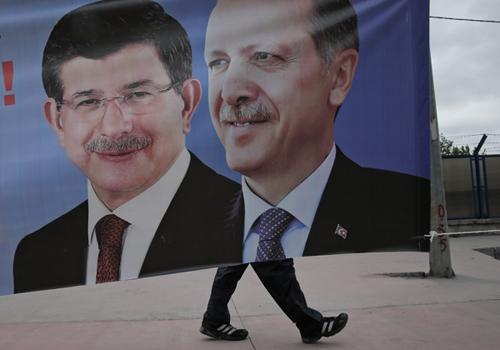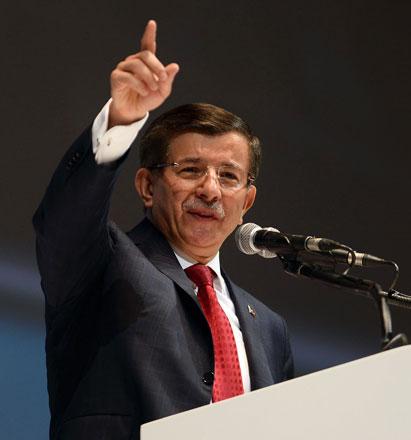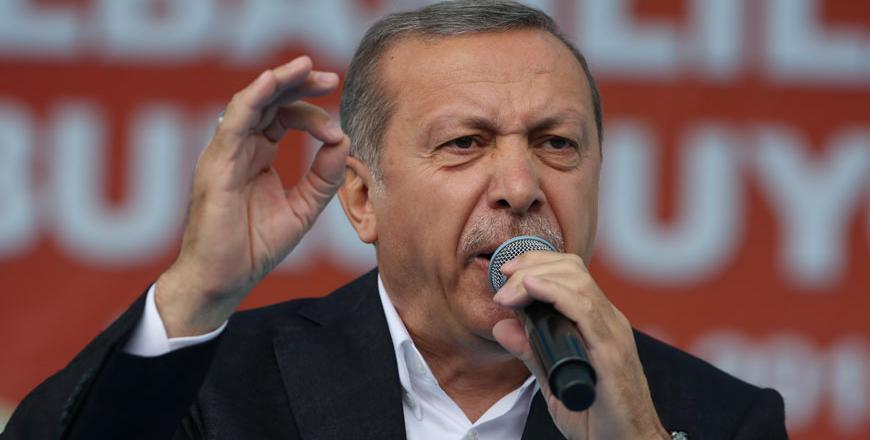You are here
Turkish ruling party preparing to replace PM Davutoglu — officials
By Reuters - May 05,2016 - Last updated at May 05,2016
ANKARA — Turkey's ruling party is set to replace Prime Minister Ahmet Davutoglu at an extraordinary congress in the coming weeks, officials said on Wednesday, signalling the end of his term as premier and plunging the country into political uncertainty.
The decision, confirmed to Reuters by five AK Party officials, came after a meeting of more than one-and-a-half hours between Davutoglu and President Recep Tayyip Erdogan that followed weeks of increasingly public tension between the two men.
"The president and prime minister reached agreement on the congress... I don't think Davutoglu will be a candidate again," one of the officials told Reuters.
The leader of the AKP, which has governed Turkey since 2002, also serves as prime minister. Davutoglu's likely departure looms as Turkey faces mounting security challenges, with a Kurdish insurgency in its southeast and the spillover of the war in Syria on its southern border.
The European Union is counting on Turkey to help stop migrants streaming into the continent under a landmark accord brokered by Davutoglu, and Washington is drawing on NATO member Ankara's support in fighting Islamic State in Syria and Iraq (Daesh).
The lira weakened more than 4 per cent to 2.976 to the dollar, its weakest since the end of February, as investors balked at the prospect of more uncertainty.
"Davutoglu's departure at this stage would be a significant market negative," Timothy Ash, strategist at Nomura, said in a note to clients.
The AKP official said the congress would be held as soon as May 21 and no later than June 6, the first day of the Islamic holy month of Ramadan, and that Erdogan was adamant there should be no vacuum of power at the head of government.
Rift
Erdogan's drive to tighten his grip on power has caused an increasingly open rift with Davutoglu, encompassing issues from relations with Europe to the pre-trial detention of government critics.
Erdogan, a political fighter hardened by a childhood in Istanbul's rough Kasimpasa district, wants a robust presidential system as a guarantee against the fractious coalition politics that hampered Turkey in the 1990s. His opponents see a stronger presidency as a vehicle for his own ambition.
Such a system would have seen Davutoglu, a more mild-mannered academic and former diplomat who lacks Erdogan's natural appeal to crowds, sidelined.
The two have governed in a strained alliance since Erdogan won the presidency in 2014 and Davutoglu replaced him as prime minister. Aides to Davutoglu had largely dismissed the tensions as matters of style rather than substance.
But in the clearest sign yet of a power struggle, the authority to appoint provincial AKP officials was taken from Davutoglu last week. The move reduced Davutoglu's hold over the party grassroots and cemented Erdogan's influence.
The two leaders have appeared at odds over the deal with the EU to stem the flow of illegal migrants from Turkish shores to the Greek islands, in return for which Ankara has been promised accelerated EU accession talks, visa liberalisation and financial aid. The deal has been Davutoglu's project, and its future may be less certain after his departure.
Erdogan, frequently critical of the EU, has at times appeared to belittle Davutoglu's progress, most notably efforts to win visa-free travel to Europe by June, the main prize in the eyes of many Turks.
"During my time as prime minister it was announced [this] would come in October 2016," Erdogan said recently. "I don't understand why bringing it forward four months is presented as a win. I'm saddened by the presentation of small things in a bigger light."
Former diplomat and political commentator Sinan Ulgen said the two leaders had always faced a "fundamental dilemma".
"Erdogan's end goal is to consolidate enough popular support to switch to a presidential system. Davutoglu's end goal is to consolidate his own power and be a successful prime minister," said Ulgen, head of the EDAM think-tank in Istanbul.
Related Articles
ANKARA — Turkish President Recep Tayyip Erdogan may have stamped his authority on the ruling AK Party with the exit of Prime Minister
ANKARA — Turkey's ruling AK Party re-elected Prime Minister Ahmet Davutoglu as its chairman at a congress on Saturday where the longest shad
ANKARA — Whether it teams up with the nationalist or secularist opposition, Turkey's ruling AK Party must navigate the same obstacle in its














